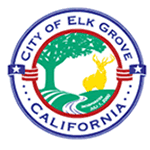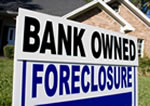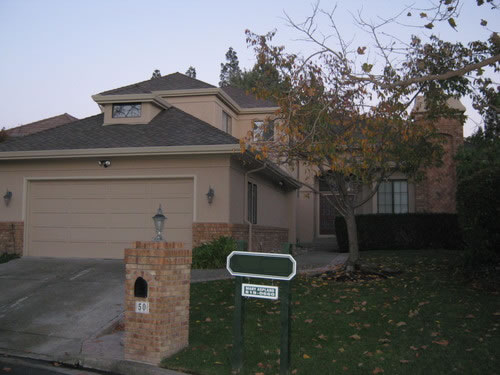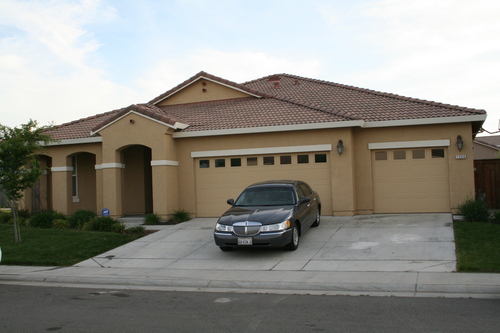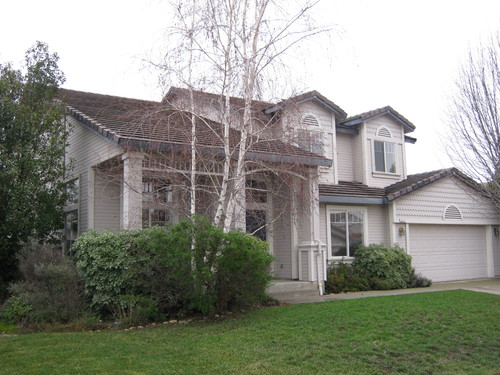Frequently Asked Questions
Q. How do I buy a Home in US ?
Q. Are foreigners allowed to buy a home/property in US ?
Q. Are homes (properties) in US freehold or leasehold ?
Q. Is my earnest money deposit refundable ?
Q. Do I need to buy fire insurance if I buy a home (property) in US?
Q. Can I get a loan if I buy a home (property) in US?
Q. What is an Escrow Company ?
Q. Do I need a lawyer to buy a home (property) in the US ?
Q. Does a Buyer have to pay commission to a real estate broker ?
Q. Can a foreigner obtain a green card if he buys a home in US ?
Q. Are foreigners taxed on income and capital gains from properties in US ?
Q. How much are the property taxes on a California property ?
Q.What are Mello-Roos taxes ?
Q. What are assessed values, and are they the same as purchase price ?
Q. Does the Buyer have to be have to be in the US to close the transaction ?
Q. What is an HOA and what are HOA fees ?
Q. What is a lien on real estate ?
Q. What is a MLS (Multiple Listing Service) ?
Q. How can I estimate the fees/expenses involved in buying a home in CA ?
Q. Can I ask another question which is not listed here ?
Q. How do I buy a Home in US ?
1. Buyer has to make an offer to the Seller for the home (property). This offer is usually accompanied with an “earnest money deposit” check, a pre-approval letter from a Bank(Lender), a proof of funds available, and other supporting documents. This offer is usually made through a real estate agent (broker) who represents the Buyer, who then passes the offer to a real estate agent (broker) representing the Seller.
2. Once the Seller accepts the offer, the real estate agent representing the Buyer then deposits the check to the escrow company
3. Within a given time period as agreed in the Offer, the Buyer then proceeds with inspections (e.g. home inspection, roof inspection, pest/termite inspection, etc.). If Buyer is satisfied with the property, then Buyer can remove contingencies to the offer. At this time, the earnest money deposit becomes non-refundable, should the Buyer cancel the purchase.
4. At the same time, the Buyer also needs to proceed with a loan application at a Bank or Mortgage company. The Lender typically requires an appraisal be done on the property, to determine its value.
If everything is satisfactory, the Bank underwriter will approve the loan.
5. Buyer then signs various forms/disclosures from the Seller, Agents, and Bank in front of a notary public at the escrow company. The loan gets funded by the Bank. Seller pays off the loan they may owe to their Lender. Seller then signs a grant deed transferring ownership of the property to the Buyer. This grant deed gets recorded at the County Clerk Recorder’s office, and Buyer becomes the owner of the property. The escrow officer closes the escrow.
Back to top.
Q. Are foreigners allowed to buy a home/property in US ?
Yes, there are no US laws against foreign nationals buying properties and owning land in the United States.
This is true for single family homes, multi family residential properties (apartments, duplexes, 4-plexes) or condominiums.
Back to top.
Q. Are homes (properties) in US freehold or leasehold ?Most residential properties in US are freehold, in other words Buyers would own the real property and can freely pass it to their heirs. Note however that for condominiums, Buyers would only own the structure, the land is typically owned by the association. However the land itself is freehold, in other words, owned in perpetuity.
Back to top.
Q. Is my earnest money deposit refundable ?Buying a home in the US is very safe. After the Buyer’s offer is accepted, his earnest money deposit check is handed to a neutral third party (escrow company) which then deposits it into an escrow account. If during the inspection period, Buyer should decide to cancel the transaction, the deposit is refunded by the escrow company, after obtaining a release signature from the Seller. Under normal circumstances, this release can easily be obtained, since otherwise the Seller cannot sell the property to another Buyer.
Back to top.
Q. Do I need to buy fire insurance if I buy a home (property) in US?
If you pay cash, hazard (fire) insurance is optional. However, if you are getting a loan, the Bank usually requires that there is a fire insurance on the property.
Back to top.
Q. Can I get a loan if I buy a home/property in US?
For qualified foreign investors, it is possible to get a loan from a US Bank when buying a property in United States. However, the loan is typically 50-60% of the purchase price or less. In other words, the down payment must be 40-50% or more of the purchase price. For a qualified foreign investor, obtaining a loan is relatively easy, however the interest rate charged may be more than for a US resident.
Back to top.
Q. What is an Escrow Company ?
The third-party intermediary that coordinates transfer of documents between the parties to a contract, making sure that all parties satisfy their obligations before “Close of Escrow”, which is the completion of the transaction.
Back to top.
Q. Do I need a lawyer to buy a home (property) in the US ?
No, in California, most if not all real estate transactions are conducted through an escrow company, which acts as a neutral third party that facilitates and coordinates the transaction.
Back to top.
Q. Does a Buyer have to pay commission to a real estate broker ?
No, generally a Buyer does not have to pay a commission to a real estate agent (broker) when procuring a property. Commissions are paid from the Seller’s proceeds. Nonetheless, in the US, real estate agents have a fiduciary responsibility to their clients whether they are Buyers or Sellers.
Back to top.
Q. Can a foreigner obtain a green card if he buys a home in US ?
No, obtaining a green card (permanent residence) is separate from buying a residential property in the US.
To buy a property a foreign national does not even have to go to the US. Typically, a foreign national can enter the US easily by applying a visitor visa (B1/B2). Certain countries nationals are allowed to enter the US without a visa.
Back to top.
Q. Are foreigners taxed on income and capital gains from properties in US ?
Yes, both foreign nationals and US residents are taxed both on income as well as capital gain.
However, foreign nationals are treated differently, although they may elect to be treated in a similar manner as US residents, as far as real estate income is concerned. With regards to capital gain though, the tax treatment is different. Please contact us for further details.
Back to top.
Q. How much are the property taxes on a California property ?
Property taxes in California are approximately 1.25% of the assessed value per year. Property taxes are paid in two installments, once in December and another in February. In some newer areas, there may be additional Mello-Roos taxes which may increase taxes to two percent or more.
Back to top.
Q.What are Mello-Roos taxes ?
Mello-Roos is simply a special tax assessed to homeowners in a community as repayment for bonds used to fund the infrastructure within their community (such as new schools, parks, recreation centers, etc.)
The name Mello-Roos comes from Senator Henry Mello and Assemblyman Mike Roos who authored the Community Facilities District Act which allows local government agencies means of obtaining community funding.
Back to top.
Q. What are assessed values, and are they the same as purchase price ?
This is the dollar value placed on a parcel of property by the County Assessor’s Office. It is computed by analyzing individual sale transactions. It is the Assessor’s estimate of market value. It is not necessarily the same as purchase price. In California, if someone owns a property for a long time, the taxable value of his property may increase annually by no more than the rate of inflation or two percent, whichever is less.
Back to top.
Q. Does the Buyer have to be have to be in the US to buy a home ?
If a Buyer is paying cash, he can do the transaction remotely. However, if the Buyer needs a loan, typically the Lender will require that he/she has at least a tourist visa (B1/B2) to enter the US. Even for a transaction with a loan, at closing, the new owner does not need to be in the US to sign the documents. Rather, the Buyer can provide his or her representative with a “Power of Attorney” who will have the right to sign on behalf of the Buyer. This is quite common and convenient for the Buyer who does not want to come back to the US for the closing. Note however, that this POA should be drafted by the escrow officer and should be approved by the Lender. The POA document will be recorded along with the grant deed and deed of trust at the County Clerk Recorder’s office.
Back to top.
Q. What is an HOA and what are HOA fees ?
A HOA is a Home Owners Association. Typically, a HOA is incorporated by the developer prior to the initial sale of homes or condos, and the Covenants, Conditions, and Restrictions (CC&Rs) are recorded when the property is subdivided. Every home or condominium owner is a member of the association and any new owner is forced to become a member. All members must pay assessments to and abide by the rules and restrictions of the association. Some homes, townhomes or condominiums in California have a HOA. HOA’s may be quite strict in regulating the exterior look of the properties and their landscaping. Sometimes, they may restrict the right of the owner to rent out the property.
Back to top.
Q. What is a lien on real estate ?
Liens on real estate are claims against property that are made in order to secure payment of a debt. If a person who owes a debt, often called a debtor, owes money to another person or entity, commonly called a creditor, then the creditor may place a lien on the debtor’s property for the value of the debt owed. As a result of the lien, the real estate is used as collateral against the debt. As collateral, the real estate becomes an asset that is a potential source of payment of the debt, if the debtor otherwise fails to satisfy the debt by paying it in full.
In some cases, property owners place voluntary liens on their property, such as mortgage liens. By pledging their real estate as collateral for the mortgage loan, homeowners are able to secure the funds that they need for home improvement, debt consolidation, or other purposes.
Back to top.
Q. What is a MLS (Multiple Listing Service) ?
A MLS is a private database that is created, maintained and paid for by real estate professionals (realtors) to help their clients buy and sell properties. In most cases, (read-only) access to information from MLS listings is provided to the public free-of-charge by participating brokers.
Basically, the MLS works like a big property bulletin board. When property becomes available for sale, it is listed by the realtor in the bulletin board. When it is sold, it gets taken out of the bulletin board.
Back to top.
Q. How can I estimate the fees/expenses involved in buying a home in CA ?
The costs of closing a real estate purchase transaction generally include the following: Title Insurance, Escrow fees, Lender fees, (up front points to the Lender), Appraisal fees, Notary fees, Recording fees, Fire Insurance (required if buying with a loan), prorated Property taxes, county/city Transfer taxes.
In a purchase transaction the party responsible for paying the big ticket closing costs, the title, escrow fees and transfer taxes, is determined in the offer/purchase contract. Typically, the party who pays is based upon the custom of the county in which the property is located. For example, the buyers of property pay the title, escrow fees and transfer taxes in one county while another may require the seller to cover the expenses and yet another may require that the fees be split 50-50.
Use this form to calculate your estimated closing costs
Back to top.
Q. Can I ask another question which is not listed here ?
Back to top.
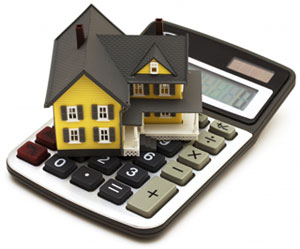

















 Articles on Foreign Interest in US real estate
Articles on Foreign Interest in US real estate